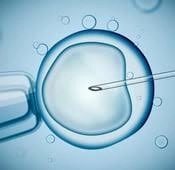
IVF Step by StepWith Dr. Karim Kamal
Published on: 2025-07-01 | Written by: Dr. Karim Kamal, Consultant of Obstetrics
Dr. Karim Kamal, Consultant of Obstetrics, Gynecology, IVF, Female Endoscopy, and High-Risk Pregnancy, is one of the leading experts in fertility treatment. Among the most successful assisted reproduction techniques is Intracytoplasmic Sperm Injection (ICSI), commonly known as IVF, which has brought hope to countless couples.
In this article, Dr. Karim Kamal explains the full IVF journey from initial evaluation to confirming pregnancy.
Step 1: Evaluation and Initial Tests
Before starting the cycle, Dr. Karim Kamal conducts a comprehensive assessment, including:
-
Medical history of both partners
-
Hormonal profile for the woman (FSH, AMH, LH, Prolactin…)
-
Semen analysis for the husband
-
Uterine assessment via ultrasound or hysteroscopy
-
General blood tests and infection screening
This step helps determine the best treatment protocol for each case.
Step 2: Ovarian Stimulation and Egg Retrieval
Dr. Karim Kamal prescribes ovarian stimulation medications to encourage the development of multiple eggs, closely monitored by ultrasound and blood tests.
When the eggs reach the appropriate size:
-
A trigger injection is given to finalize maturation
-
Egg retrieval is performed 34–36 hours later under mild sedation
-
Retrieved eggs are immediately prepared for fertilization
Step 3: Fertilization via ICSI
In the advanced embryology lab:
-
The healthiest mature eggs are selected
-
A single healthy sperm is injected into each egg (ICSI)
-
Fertilization and embryo development are monitored for 3–5 days
Dr. Karim Kamal oversees embryo progress daily to choose the best ones for transfer.
Step 4: Embryo Transfer
-
1–2 embryos are gently transferred into the uterus using a thin catheter
-
The procedure is painless and doesn’t require anesthesia
-
Patients are advised to rest for 48 hours afterward
-
Supportive medications begin post-transfer to enhance implantation
Step 5: Pregnancy Test and Follow-up
12–14 days after embryo transfer, a beta-hCG blood test is performed:
-
If positive, a high-risk pregnancy follow-up program begins
-
If negative, Dr. Karim Kamal discusses reasons for failure and future attempts
Conclusion
IVF is not just a medical procedure—it’s a carefully coordinated journey that requires experienced supervision and precise follow-up. Dr. Karim Kamal emphasizes that success depends on choosing the right doctor, a well-equipped center, and a high-tech lab to increase the chances of a healthy pregnancy.

